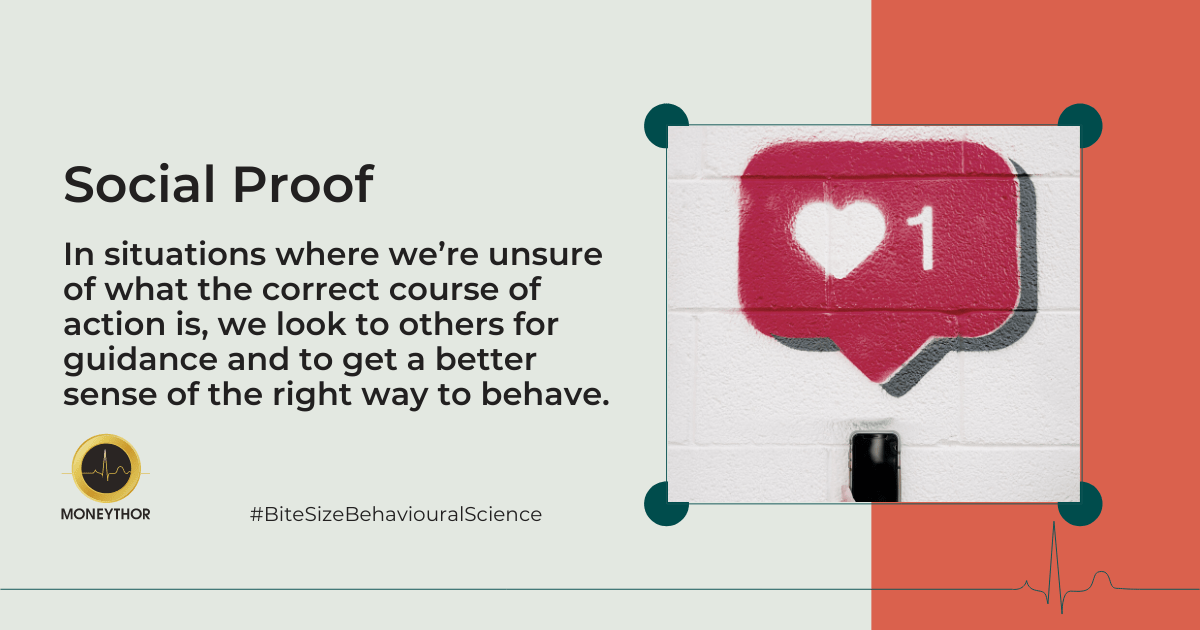Imagine this: you are looking to buy a new pair of walking shoes. You go to your favourite brand online and in your size, there are three options available. Having never owned walking shoes before, you look through their reviews; the first one has more than 150 reviews with an average of 4.9 stars, while the next one has 70 reviews with a 3 star average and the third has no reviews at all. Which one do you end up buying?
You would probably have gone with the safe option with more than 150 positive reviews. If so many people think it’s great, surely it is a safe bet? This reaction is a cognitive bias also known as social proof; a phenomenon in which we find ourselves looking outward and referencing the actions of others in an endeavour to adapt their decision making to our own situations.
What is social proof?
The social proof theory was made popular by psychologist Robert Cialdini. It posits that in situations where we’re unsure of what the correct course of action is, we look to others for guidance and to get a better sense of the right way to behave. In today’s highly digitised world, social proof can be harnessed to provide evidence of usability or popularity of a product, influence good decision making and compel users to act within societal norms and expectations.
How can social proof be applied to financial services?
Leveraging positive customer experiences as a differentiator
When it comes to creating financial products for the tech savvy consumers of today, surveys show that the challenge goes beyond just building innovative technology. For neo banks and fintech firms, there is also the challenge of convincing consumers to convert from bigger brand names they might have more familiarity with. Good customer experience is a key differentiator – even ahead of product innovation – for users right now and it helps with not just branding, positioning and visibility in the market, but also in driving fundraising and generating interest from investors.
Financial wellbeing and awareness programs
When encouraging users to embark on their financial wellbeing journey, it can be useful to harness social proof as a tactic. For example, data points derived from market research and consumer surveys can be used to exemplify how many people have benefitted from features like an auto debit savings goal. Alternatively, having gamified in- app experiences that allow users the ability to benchmark their progress against their past selves, or even others, can be a good way to keep users focused on their financial wellbeing journey.
Understanding your audience
Another way to leverage social proof is the tracking of metrics such as new and returning customer sign ups, referrals, customer reviews and mobile app downloads. Tracking social proof metrics allow companies to better understand consumers, which is important especially when launching new products.
Conclusion
Banks and fintech firms can utilise social proof to support their marketing, product development and brand awareness. It provides a solid grounding for long term meaningful relationships with consumers and has been shown to be a key factor in shaping customers’ decision making, particularly in the adoption of new digital financial products. It is especially effective when embedded within existing financial wellbeing programmes and is able to further build a consumer’s confidence in their own financial decision making and in their relationship with the digital banking provider.

